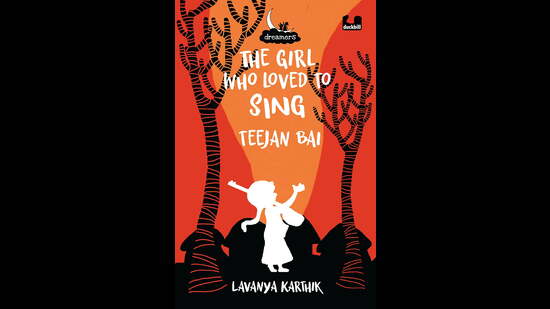HT reviewer Kunal Ray picks his favourite read of 2022
Lavanya Karthik’s book is a brief introduction to the life of Teejan Bai, who was constantly forbidden to sing but is now synonymous with Pandavani music
I first heard Teejan Bai during my sophomore days in Pune. She was performing in town and some of us were intrigued by an article that had appeared in the morning paper. Teejan Bai is an exponent of Pandavani, a folk music form involving the narration of tales from the Mahabharata. Upon attending the recital, I realised that a Teejan Bai performance is both visual as well as aural. Her stage presence is remarkable. She commands an all-male team of accompanying musicians. In her redoubtable style, she sings and takes the audience on a journey through the Mahabharata. Teejan Bai, who is from the Pardhi Bhil tribal community of Chhattisgarh, is an inspiration to many for taking control of her music and choosing the unconventional life of a traditional performing artist.

Reading Lavanya Karthik’s book took me back to that first encounter with the singer and reminded me of her larger-than-life aura that transcends the stage and the ambit of the performance. It also made me wonder why I did not have such a book while growing up and how my perception of the arts in India would have changed if I did.
Lavanya Karthik’s account, primarily written for children, is a brief introduction to the life of Teejan Bai, who struggled to practice and learn music. Constantly forbidden to sing, she left home to do what she loved. Her story is an account of her indomitable spirit and will to survive the odds and let her voice be heard to such an extent that she is now synonymous with Pandavani.

This book is part of the Dreamers series helmed, written, and beautifully illustrated by the same author. To me, it is a significant attempt to introduce children to the life stories of several inspiring individuals of modern India. Teejan Bai’s inclusion is demonstrative of the vision of the writer and her inclusive politics and will go a long way towards bringing several noteworthy individuals on the margins to mainstream consciousness.
It was Teejan Bai’s grandfather who told her that she shouldn’t just sing but become the song. Teejan Bai did indeed become the song and this little book is a celebration of that music.
Kunal Ray teaches literary & cultural studies at FLAME University, Pune.





